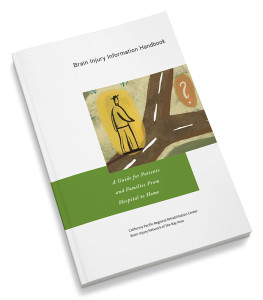We take for granted the role our brain plays in our lives. We move through our days facing minor irritations, finding times when we are not as sharp as we would like, maybe having some moments of forgetfulness. We notice that when we are tired or stressed, things are not as easy as when we are rested and focused. But what we generally do not think about is how the brain is responsible for our every action, emotion, and thought.
A brain injury can affect how a person feels, thinks, acts, and relates to others. The important role our brain plays in all areas of our functioning, and our lives, comes into sharp focus when there is an injury to the brain.
One Injury, Many Causes
Acquired Brain Injury (ABI)
Acquired brain injury refers to all forms of brain injury that occur after birth, regardless of the cause. Causes of an acquired brain injury include, but are not limited to:
- Falls
- Car accidents
- Sports-related impacts
- Trauma
- Stroke
- Aneurysm
- Brain tumor
- Virus
- Oxygen deprivation (caused by heart attack, near drowning, suffocation, etc.)
- Infectious disease
- Toxic exposure
- Substance abuse/overdose
- Seizure disorder
Traumatic Brain Injury (TBI)
A traumatic brain injury is a form of acquired brain injury that results from an external blow, penetration or jolt to brain. The severity of TBI ranges from mild to severe. Concussion is a form of traumatic brain injury, though symptoms typically resolve often after a period of time. For more information on concussion, please visit ConcussionSmartMarin.org.
Potential Effects of a Brain Injury
As described by the Center for Disease Control and Prevention, the severity of a brain injury may range from “mild” to “severe,” and can cause a wide range of functional short- or long-term changes:
- Physical/motor disabilities
- Behaviorial issues
- Language and communication deficits
- Cognitive deficits (memory, problem solving, focus, attention)
- Psychiatric/psychosocial sequelae (mood, anxiety, depression, irritability
- Isolation, loneliness, loss of community
- Frustration, boredom, functional decline
- Loss of relationships, relationship issues, role changes, sexuality
- “Nobody gets me”
- Psychosocial challenges are associated with increased mortality and decreased functional outcomes
- Inability to return to work
Brain injury is a significant public health problem.
These injuries can not only affect the lives of an individual and their family, they also take a toll on our economy and our society.
- A stroke happens every 40 seconds in the U.S.
- An estimated 1.7 million children and adults in the U.S. sustain a traumatic brain injury (TBI) and another 795,000 individuals sustain an acquired brain injury (ABI) from other causes each year.
- 5.3 million Americans live with a long-term disability as a result of TBI.
- The annual cost of TBI to society exceeds $76.5 billion.
- The annual cost of stroke in the United States was $53.9 billion in 2010.
- 75% of traumatic brain injuries are classified as “mild.”
- Children ages zero to four-years-old, older adolescents aged 15 to 19 years, and adults aged 65 years and older are most likely to sustain a TBI.
- Males are more likely, at any age, to sustain a TBI.
- Falls are the leading cause of TBI. Rates are highest for children aged zero to four-years-old, and for adults aged 75 years and older.
- An estimated 1.1 million living in the US have a disability due to a stroke.
Sources: Brain Injury Association of America; U.S. Department of Health and Human Services; Texas Health and Human Services Commission.
Brain Injury Information Handbook
For more comprehensive information about brain injury, we invite you to read our helpful Brain Injury Information Handbook – a free guide for survivors and families as they navigate through their journey toward recovery after an acquired brain injury, from hospital to home.


